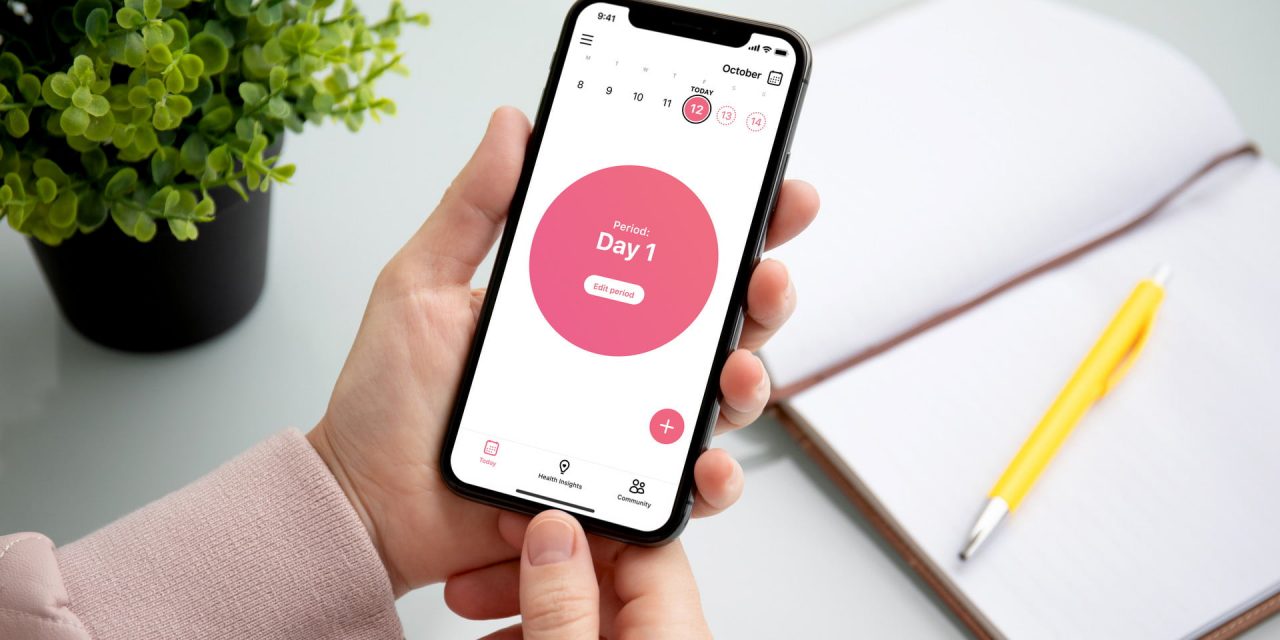We can manage almost any aspect of our life using our smartphone. Health apps in particular have grown exponentially, with the market size quadrupling between 2015-2020.
In amongst the thousands of fitness and mental health apps are fertility and period tracking apps to help women conceive. By tracking their periods, women will better understand the best time in their cycle to try and conceive.
These apps are designed to help all women who are looking to increase or decrease their chances of getting pregnant. In particular, they’re aimed at helping women who have struggled to conceive or who are looking to have children at a later age. With traditional family roles changing, many are women choosing to focus on their careers before starting a family. For example, in 2019, the average age of first-time mothers was 30–34, whereas in 1970, it was 21 years old.
Clinical studies have shown that fertility declines naturally with age. Though not the case for all women, sometimes the decline can begin as early as their early 30s. One study shows a 30-year-old woman has a 20% chance of becoming pregnant every cycle.
These apps can help women to determine when they are most fertile, which in theory increases their chances of getting pregnant. Here, we round up the best fertility and period tracking apps for women looking to conceive.
Flo
Downloads: 145 million
Rating: 4.7 stars (iOS) 4.8 stars (Android)
Using artificial intelligence (AI) to make accurate predictions, Flo is one of the most widely used fertility apps on the market. With the ability to log over 70 symptoms, you can also enjoy a plethora of expert articles that are adapted to become informed on your lifestyle. You can even discuss intimate topics with other users to create a network of support among women across the world.
Clue
Downloads: 8 million
Rating: 4.7 stars (iOS) 4.8 stars (Android)
Clue is a great catch-all app that not only identifies when you’re most fertile but also gives you insights on how your period will affect your body (period spots, anyone?). With help from science and logging your data, Clue helps you to get an in–depth understanding about your body and personal patterns, tracking factors such as period pains, skin, hair, and sleep. There’s an ovulation calculator and predictions on how fertile you are.
Ovia Fertility
Downloads: Unknown
App store rating: 4.7 (iOS) 4.6 (Android)
Sitting within a family of services and apps, Ovia Fertility uses your cycle information combined with fertility research to predict when you’re most fertile, including a fertility score. By tracking your basal body temperature, cervical fluid, cervical position, medications and other personal data such as diet and exercise, you’ll get real-time health alerts based on your symptoms and cycle insights. You also get access to free expert articles on the topic of fertility and reproductive health, as well as access to a community to ask anonymous questions.
Natural Cycles
Downloads: 1.5 million
Rating: 4.7 stars (iOS) 4.6 stars (Android)
Natural Cycles, created by a Swedish couple looking for a natural contraception technique, is the first FDA-approved birth-control app. Now, it is used by thousands as a means of pregnancy planning — with two options, ‘prevent’, and ‘plan’. Were you aware that your temperature is linked to your menstrual cycle? By analysing your basal body temperature on a morning over a period of time, this app gives a clear and simple indication of your fertility with algorithms.
How accurate are fertility and period tracking apps?
The jury is still out on whether these apps are effective in helping women become pregnant. Flo cites a 54.2% increase in accurate fertility tracking when using its app. Clue hasn’t released accuracy statistics but has been rated as the top fertility app in the Obstetrics & Gynecology academic journal.
Natural Cycles was embroiled in a media scandal in its early years as some users got pregnant while using the app as a contraceptive. The app does, however, cite a 93-98% accuracy rate on its website. Ovia Fertility also doesn’t provide statistics on its efficacy.
A randomised study in the Journal of Women’s Health found that fertility apps can increase the likelihood of conception within two months, but additional studies have proved inconclusive. There are a number of steps women can take to improve their chances of getting pregnant, including:
Maintaining a healthy weight (both men and women)
Giving your partner a Coenzyme Q10 Fertility supplement to increase sperm quality
Giving up smoking and limit your alcohol intake (both men and women)










Recent Comments